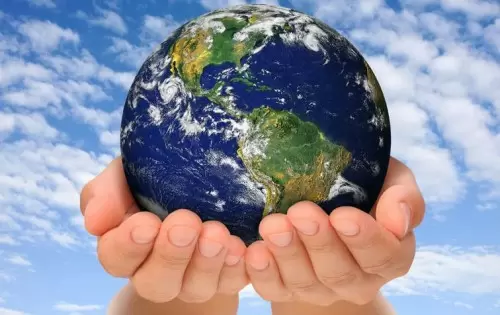Alaska… the environment is in your blood up here. There's no getting away from it, from the majestic scenery to the onslaught of the seasons, to the enormous risks that are run in extracting and moving more than half a million barrels per day of oil off the North Slope.
Twenty years later, soil samples from beaches across Prince William Sound are still turning up sediments contaminated by rich, dark Prudhoe Bay crude. We'll continue to contend with the risks and benefits of drilling even as it's become clear that new challenges will face 21stCentury Alaskans in the form of thawing permafrost and the disappearance of the state's iconic glaciers.
And as one of the premier fisheries of the world, oceanic and environmental studies of shorelines will also continue to be important up here. It's just a fact that there is a lot of environment to go around up here under the Northern Lights, and it takes a lot of well-trained people to do it.
What Can I Do with an Environmental Science Degree in Alaska
With wide swaths of acreage owned and managed by federal and state agencies such as the National Park Service, the Division of Mining, Land, and Water, and the Bureau of Land Management, government jobs in environmental science are king in Alaska.
But many non-profits and corporate entities have plenty of work for you to perform up here on the new frontier. Compliance is important in gas and oil operations, so companies like Sealaska are always hiring project managers and environmental technicians for spill prevention and NEPA (National Environmental Policy Act) compliance work. The Bering Straits Native Corporation is looking for specialists for mitigation efforts centered on past corporate and federal pollution.
And research and development are constants in both public and private sectors, whether working as an environmental program manager for the state fisheries, or a research assistant at a university.
You can expect to be well-paid for your labors, too. Although environmental work isn't usually associated with raking in the bucks, pay is at premium levels for all types of jobs in the northernmost state… according to the Bureau of Labor Statistics, conservation scientists pull down a median of more than $77,000 here. And on the private side, geoscientists can make six figures.
2020 US Bureau of Labor Statistics salary figures and job growth projections for Geoscientists, Except Hydrologists and Geographers and Conservation Scientists reflect state data not school-specific information. Conditions in your area may vary. Data accessed September 2021.
Master's in Environmental Science in Alaska
Reflecting the importance of the environment up here, three out of the four universities with environmental programs offer master's degrees in the field (although the University of Alaska Anchorage campus has temporarily suspended admission to their unique MS in Applied Environmental Science for 2019).
That means you have both public and private options, a wealth of choice in a state with so few people. The sole private school in the bunch, Alaska Pacific University, delivers a comprehensive program that builds knowledge of both environmental science and policy to allow graduates to help shape the future of the state from both angles.
But it's really UA-Fairbanks that takes the cake in graduate offerings up here. With programs spanning the range between Arctic and Northern Studies to Fisheries, with stops off at Environmental Chemistry and Geoscience, there is a master's degree here to satisfy every goal and every interest in the field.
Bachelor's in Environmental Science in Alaska
The grizzly in the room of Alaska higher education is the University of Alaska system. All three of the main campuses offer undergraduate degrees in the environmental sciences.
UA-Southeast, in Juneau, draws from varied disciplines such as earth science, biology, chemistry, and spatial analysis, taking advantage of the natural laboratory surrounding the school with plenty of field work as well as classroom studies… an advantage that all of Alaska's bachelor programs aren't slow to take advantage of.
And considering how much everything else up here costs, you might be surprised to learn that the state is one of the least expensive places to earn a bachelor's degree in the entire country… the average in-state tuition for the 2013-2014 school year, according to the National Center for Education Statistics, was only $15,697.







